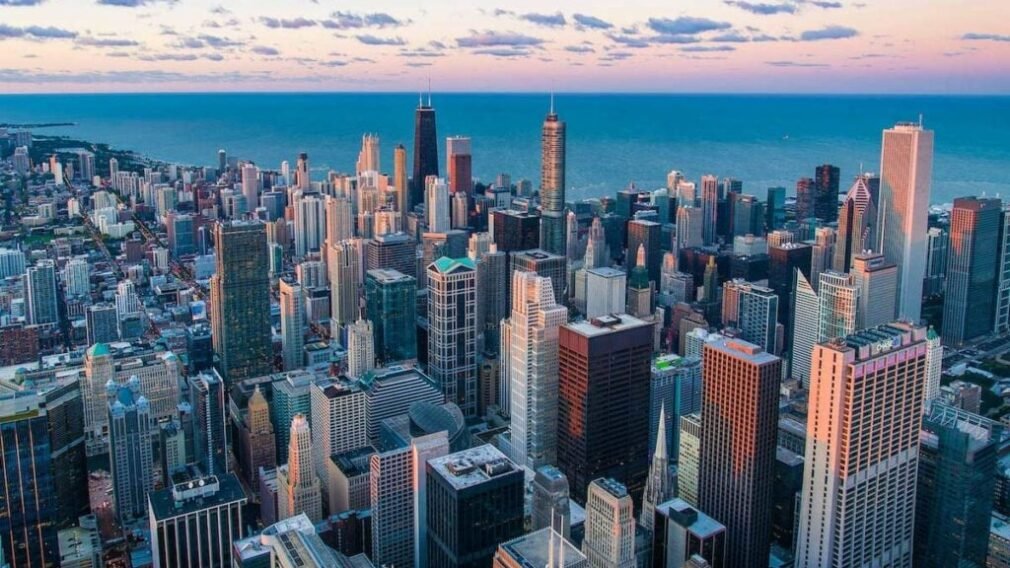Chicago Faces Defining Vote on Video Gaming Terminals
Chicago’s years-long debate over legalizing video gaming terminals (VGTs) has reached a pivotal stage, with a City Council committee narrowly approving the measure even as Mayor Brandon Johnson vows to oppose it unless the city secures a larger share of revenue. The issue now moves toward a full Council vote.

Narrow Committee Approval
On September 16, 2025, the City Council’s License and Consumer Protection Committee voted 8–6 to advance Alderman Anthony Beale’s proposal allowing VGTs in select venues across the city. The ordinance would permit machines in restaurants, hotels, theaters, bowling alleys, and other entertainment spaces where alcohol sales are not the primary business, explicitly excluding bars and taverns.
Beale, a longtime critic of Mayor Johnson, framed the move as a long overdue step toward capturing revenue that neighboring communities have already embraced. Supporters believe it could provide a lifeline for a city grappling with a deficit projected between $1.2 and $1.5 billion.
“This will help kind of plug that hole,” Beale told colleagues. “At what point do we roll it out? At what point do we look to see what’s best for the taxpayers of the city of Chicago?”
Despite committee passage, the proposal faces a steep climb. Mayor Johnson has made clear he will not back any VGT expansion unless the city secures a significantly larger share of tax proceeds.
Under the current framework, Chicago would receive just 5.15% of machine revenue, compared with nearly 30% allocated to the state. Johnson insists that the city cannot afford to accept such terms.
“We can’t leave millions of dollars on the table,” Johnson said. “Whatever comes from the City Council, if it doesn’t maximize the full benefit of what this opportunity could bring to the revenue structure of our city, then I’m not going to be supportive of it.”
Bally’s Casino in the Spotlight
The debate over VGTs is inseparable from the troubled rollout of Chicago’s Bally’s Casino. City officials argue that expanding gaming through terminals could erode casino revenues, which are subject to higher tax rates and earmarked for police and fire pensions.
Jill Jaworski, the mayor’s chief financial officer, downplayed the projected benefits of VGTs. “We don’t expect it to make a big impact. Maybe we make $10 million one year and lose $5 million another,” she said.
Other officials raised concerns that Bally’s annual $4 million fee to the city could disappear if VGTs are legalized. Critics worry the machines could cannibalize a project already delivering far less than promised.
Alderman Brendan Reilly, a vocal opponent of Bally’s, called the casino “an unmitigated disaster,” pointing to underwhelming revenues and construction delays. “The revenue hasn’t shown up for the police and fire pensions,” he argued. “So just lots of not showing up by Bally’s.”
Competing Visions for City Revenue
Beale and his allies counter that Bally’s has failed to deliver, while VGTs could generate as much as $60 million annually—though the figure comes from industry sources and lacks independent verification. He accused the city’s finance team of misleading projections, calling them “total BS.”
“If the rest of the state is doing it, why not Chicago? This is cut and dry. This is a revenue generator and the city needs revenue,” Beale said.
Meanwhile, Alderman William Hall criticized Beale’s proposal for failing to tackle the proliferation of gray-market “sweepstakes” machines, describing the measure as a rushed “quick grab-and-go solution.”
Ivan Capifali, Johnson’s commissioner of Business Affairs and Consumer Protection, urged the committee to delay its vote, citing unresolved regulatory, financial, and social concerns. “There is a financial impact, there is a social impact, and there, of course, there is a criminal impact. So as we understand that there is a need to regulate these machines,” he said.
That plea was rejected. Committee Chair Debra Silverstein argued the city had debated the issue for too long. “We have been talking about this for years and years and years, so the city should have been ready for this, especially in such a budget crisis that we have right now,” she said.
Alderman Anthony Napolitano echoed that frustration: “I’m fed up with just blowing it off. … Then we’re going to go in this room next month and ask for more property taxes when we’re blowing off revenue that can come in and help our city, help our pensions?”
The ordinance now heads to the full City Council, where the outcome is far from certain. With a narrow committee margin, opposition from the mayor, and unresolved questions about revenue-sharing with the state, the fate of VGTs in Chicago hangs in the balance.
Recommended
